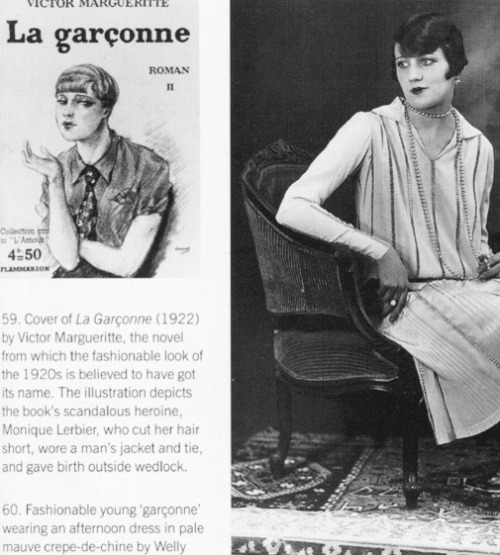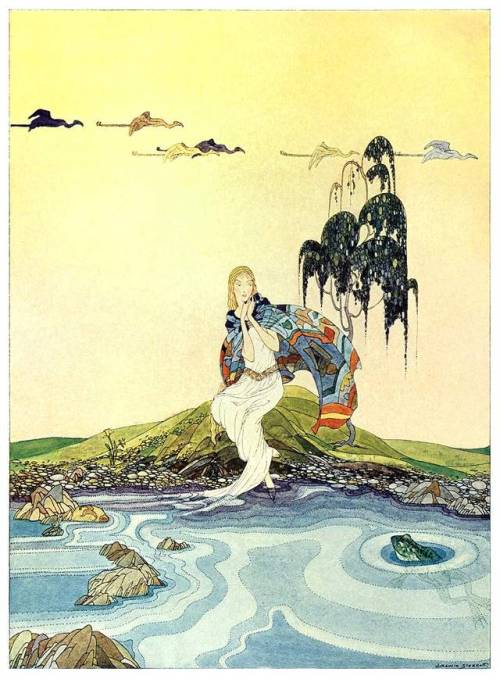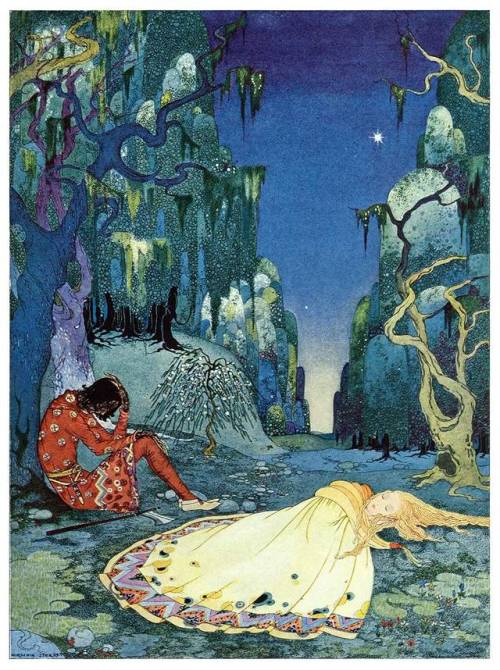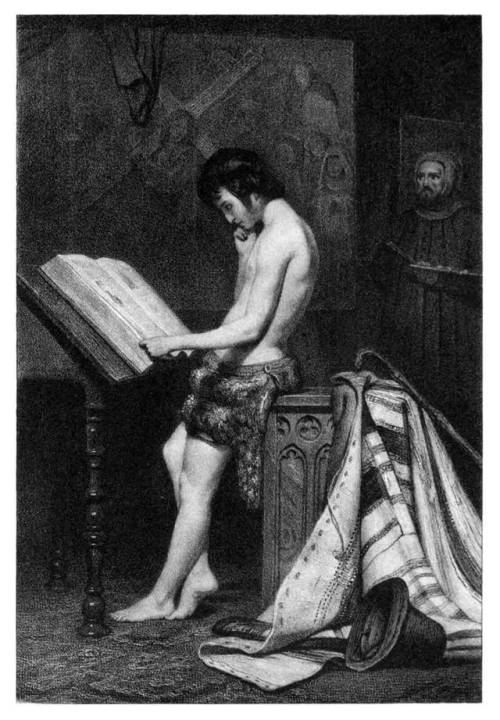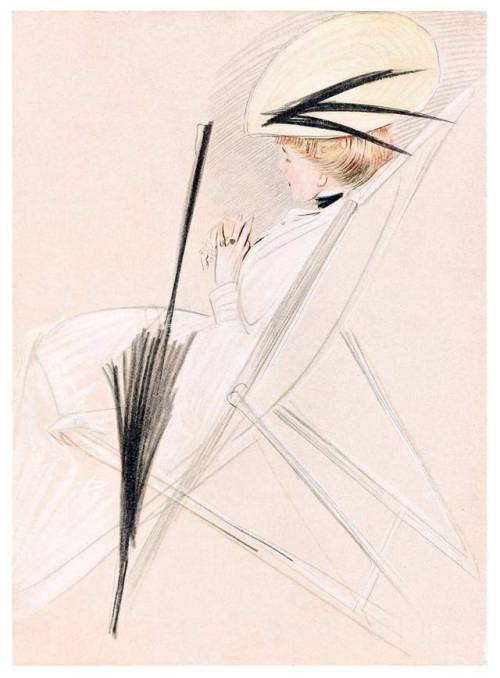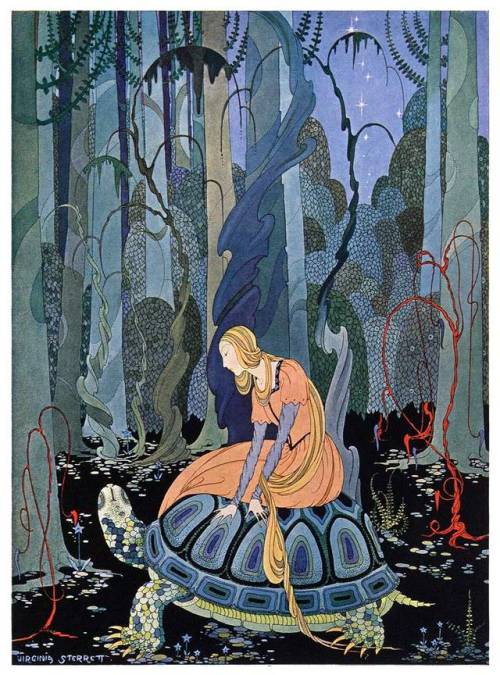#french culture
We all have preconceived notions of certain countries and cultures. We might even understand that these are gross generalizations but that doesn’t keep us from believing them. The French have quite a few preconceived ideas on what it means to be American. I’m going to explore where these stereotypes might come from.
*Disclaimer: This is all (slightly researched) speculation. *

1. Americans are stupid
Americans have the unfortunate stereotype of being not so bright. Many Europeans would agree. Is there some truth to this? Well according to OECD (Organization for Economic Cooperation and Development), the U.S ranks 26th worldwide in scholastic test scores, below other world powers such as France, Germany, and China. But this is only proof if you believe that test scores accurately define intelligence. Also, the typical French person probably doesn’t know this statistic…so why do they think we’re “idiots”?
Probably because we are generally ignorant of the world around us. Who’s the Prime Minister of the UK? What political scandal is currently going on in Brazil? What is ISIS? The reality is many Europeans could answer these questions and many Americans could not. The other day I watched this American girl try to order at a french bakery. This first thing she said was “Hola” (*face palm*) and then she very loudly asked for a sandwhich in english, as if yelling would help the cashier understand her better. This is the American traveler in a nutshell - we go overseas without any regard for common practices, norms, or courtesies. This lack of cultural curiosity is what probably makes us seem uninformed, silly, and quite frankly, stupid.
2. Americans are superficial
Outsiders believe that all we care about is our looks, status, and wealth. Materialistic is our name and consumerism is our game. But like, we can’t like, be bothered with things like “inner beauty”. I mean, duh, we have reps to protect!
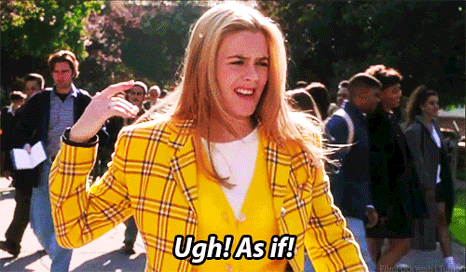
It’s not hard to understand why one would come to this conclusion of us. Watch American TV for 30 minutes and you will see how we eat up ideas of popularity and wealth. I mean we are the same country that has made famous-for-nothing Kardashians a household name. We’re also the same country that lets Channing Tatum “act” and lets Taylor Swift whine on every stage. I must admit (ashamedly) that I’ve thought to myself, “Wow, french actors and singers are not attractive”. But their celebrities are actually famous for being talented. Crazy concept, right?
3. Americans are conservative
One day when I was babysitting, I took the kids to the park. On the side of a building was a LARGE ad for a burlesque show with a topless woman gracing center stage. I remember feeling appalled. This is a park where children come to play! I looked around and none of the moms or their kids paid it any attention, almost as if this was normal. Am I a prude? No, I’m just American.
When it comes to nudity, cursing, or anything else considered taboo, we tend to censure it. These things are typically reserved for private spaces among adults. But in France, whether its in the media or in real life, they are much less likely to censor themselves.
Theory time: Part of this may be because we are a much more religious country than France. Although we express freedom of religion within our Constitution, we cannot deny that our country was founded on Christian principles and those principles manifest themselves within our political, social, and cultural identity. Around 88% of American citizens are affiliated with a religion compared to almost 55% of French citizens. Why are LGBT and female reproductive rights hot button issues? Why is the drinking age still 21 years old? Because of persisting conservative sentiments. Perhaps we hold more modest values because of our country’s subconscious (or maybe not so subconscious) ties to religion.
4. America is dangerous and racist

To many outsiders, most of our major cities are synonymous with danger. New York. Miami. Chicago. I’ve been asked several times by wide-eyed Frenchies if I’ve ever visited these cities and if I’ve ever felt unsafe. What puzzles them most is why, oh why, can’t America solve its gun issue? Trust me, we’re asking ourselves the same thing. Mass shootings have become unnervingly commonplace and we are just as exhausted.
As for the racism thing, French people have televisions. They see our public discourse on police brutality, the physical aggression at Trump rallies and that same presidential candidate’s stance on Mexican immigrants. They know well that our country was built on the backs of slaves and immigrants and has a 400 year history of racial oppression and discrimination. But don’t be fooled, France is not at all a racial utopia. They’ve had their fare share of discriminatory laws over the years. However, due to our track record, its the U.S that usually wins the prize of most racist world power.
5. Americans are fat
This is without doubt the number one stereotype about Americans and unfortunately there’s a lot of merit to it. We are one of the unhealthiest countries in the world. In 2015, 74 million Americans, almost 2/3 of the country, were considered overweight or obese. Researchers predict that these numbers will only increase and by 2020, 75% of the nation will be overweight. Compared to the 40% of overweight French citizens, these numbers are quite egregious.
But what’s ironic is that we are by far more obsessed with exercise and healthy eating. We have a strong “work out culture” in the states and for most Americans the question is not whether you’re dieting but which diet you’re on. As a whole, French people don’t actively work out. In fact in the 9 months I’ve been here, I have seen one gym. ONE. And it was extremely empty. They don’t have to work at being healthy because they just naturally are. It’s not in their culture to eat large fast food portions or eat out for that matter. Where as in the US, we love to dine outside the home. Not only is it a great way to connect with friends but its convenient. And from drive-thrus to 24/7 restaurants, you cant deny our love affair with conveniency.
6. Americans are self-involved workaholics
“You can be anything you put your mind to” “Reach for the stars” “You could be the next president of the United States!”
From an early age we are told that everyone is special. That hard work is the key to success and to dream as big as possible. I asked a couple of my students what they wanted to be when they grew up and none of them had an answer. From an American perspective this is very strange. Every American child knows exactly what they want to be by the age of 3. Even if the answer is a Princess, we raise children to have a very clear and confident vision of who they are and where they are going in life.
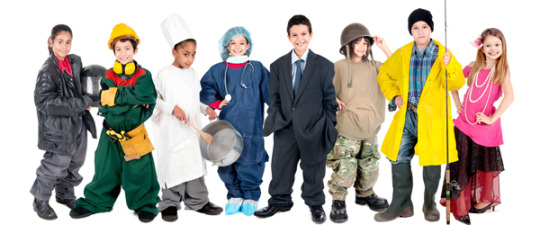
Our society is characterized by individualism. What that means is that we emphasis personal achievements, we value independence, and much of what we do in life is self-enhancing. Many countries fall into this category and you can argue that there’s nothing wrong with it. But the inevitable result of individualism is that we lose sight in the importance of people around us. We are less family-oriented and instead place more value on our personal success, which typically translates to how we perform in our careers.
Everyone is chasing the “American Dream”, hoping to make something of themselves. But instead of enjoying life, we’re too busy working hard for the money. We work 30% more than Europeans, have significantly less paid vacation time, and we’re one of the only countries that doesn’t guarantee parental leave for new mothers and fathers. We don’t value leisure time for ourselves or with our family. Maybe we are not personally “self-involved workaholics”, but the way our society is set up its almost impossible not to be.
Feeling bitter? Well let’s glance at some positive stereotypes.
7. Americans are very self-confident

8. Americans are charitable

9. Americans are super friendly
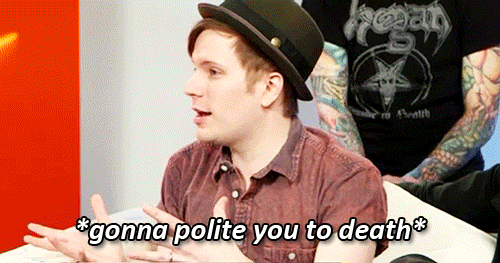
10. Americans are good looking
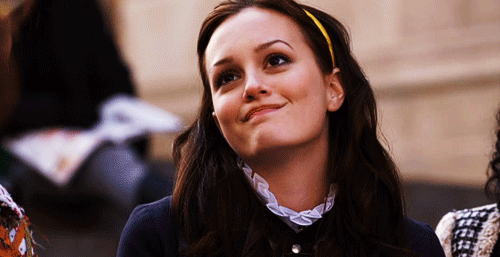
See, it’s not all bad.
I, Anndi, am a serious foodie. About 99% of the reason I ever leave my house is to try new food. Since the city is jam packed with restaurants on every corner, it’s hard to know which ones are truly worth your hard-earned coins. Well I am here to help you! Below is a list of my Top 5 Favorite Places to Eat in Paris.
1. Gumbo Yaya
Fried Chicken? Collard Greens? HUSH PUPPIES?! By far my favorite place to eat in Paris and it has nothing to do with french food. With a cool hip-hop ambiance and cookout style decor, Gumbo Yaya is a great relaxed place to dine with friends. In all honesty, it’s not incredibly authentic soul food (having a southern family I’m a harsh critic), but the fried chicken is BANGIN’ and it beats going to a french KFC any day. It’s fairly priced, with a good sized portion meal being between 11-15 euros.

Pro Tip: Get the Big Homie or the Chicken&Waffle Burger. Thank me later.
3 rue Charles Robin, Metro stop Colonel Fabien (line 2)
2. Ménélik
If you have never had Ethiopian cuisine before, just know it is entirely TOO LIT. Food full of overwhelmingly savory flavors that is meant to be shared among a large group and eaten with your hands (Take lots of napkins). From the authentic ethiopian artwork, multi-colorful tapestries, and mesmerizing east african music, this spot bathes in authenticity. The best part is easily the free mystery wine you get before your meal. It will have you feeling good in no time. But if you feel like paying for alcohol, I would try Tej which is a wine brewed with honey.
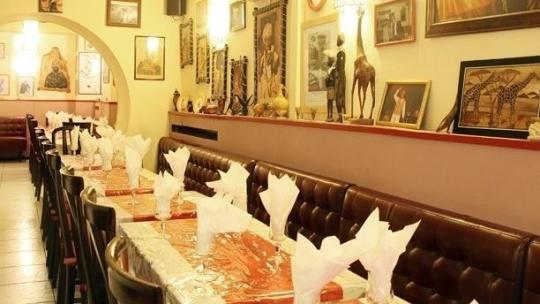
Pro Tip:Ask for more sourdough bread. You’re going to need it.
4 rue Sauffroy, Metro Stop Brochant (line 2)
3. HolyBelly
Oh, HolyBelly. Are we in old town Paris or gentrified Williamsburg, Brooklyn? It took two times of waiting in line for over an HOUR until I actually tried your savory goodness. But boy was it worth the wait! This French-American spot, located at the heart of the 10th, is a hipster haven and has perhaps the best brunch in town. With its impeccable attention to plate presentation, it has the most “Instagram-able” meals in the city. If you order the Savory Stack you will have dreams about it several weeks after.

Pro Tip: Try to get in line before 11am. After that its all over champ.
19 Rue Lucien Sampaix , Metro stop Jacques Bonsergent (line 8)
4. Churrasquiera Galo
This portuguese restaurant has a pretty underwhelming decor and even less impressive service. It’s small and has the community-style seating I loathe quite dearly. BUT the food is awesome!! The portion size is super generous by European standards and you can get a full, hearty meal for less than 13 euros! What’s best is that its located only a 8 min walk away from the Sacré-Coeur in Montmartre, the highest point in the city. It may not be phenomenal in all respects but the food makes it worth a lunch stop after sight-seeing.

Pro Trip:Only go if super hungry. Or wear stretchy pants.
69 rue du Dunkerque, Anvers (line 2), Barbes-Rochechouart (line 4)
5. La Crêperie Bretonne
My absolute favorite french meal is crêpes and galettes. Sweet or savory. I will take them however I can get them. PLEASE resist the temptation to try your first crêpe from a cheap fast food hole-in-the-wall in Saint-Michel and instead opt for one of the many tasty sit-downs on Rue du Montparnasse. This long, narrow street is lined with nothing but restaurants that specialize in this french delicacy. The most popular of these is La Crêperie Bretonne. I personally like to top my crepes with ham, egg, cheese, mushroom, and spinach but you don’t have to start or stop there! You will be overwhelmed by the options. So go here! Your taste buds will thank you for it.
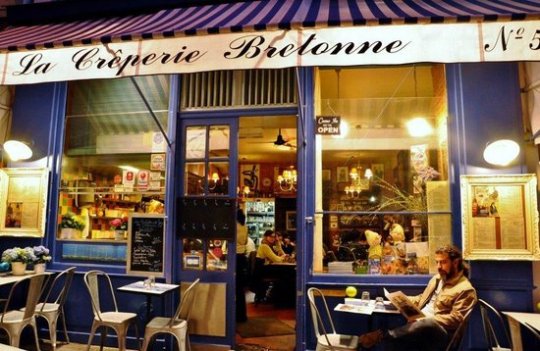
Pro Trip: Cider is the best pairing with galettes (savory crepes). Highly recommend!
56 rue de Montparnasse, Metro Stop Edgar Quinet (line 6), Vanvin (line 4), or Gare Montparnasse (line 4, 6, 12, & 13)
“Ugh I didn’t like France. French people are racist”“Go to Italy! They’re so friendly and I hear they love black women”“Do Germans even have black people outside of the military?”
It’s something almost every black traveller fathoms before venturing abroad. How will my blackness be perceived in this predominantly non-black space? It’s a valid concern. At best, our otherness might put us on a flattering pedestal. At worst, we might get mistreated. Even traveling to remote areas of the U.S you will find people that stare at you and ask aggravating questions like “Can I touch your hair?”. I certainly wondered about how I’d fare as a black woman before moving to France.

But this post is really not justabout me. Yes I am black. Yes I am in Europe. But that really doesn’t make me special. Because even though only a small percentage of African Americans travel to Europe yearly, there are tens of millions of black people that are already there: Afro-Europeans.
Black people don’t just live in Africa and the United States. Thanks (but like, no thanks) to colonialism, the African diaspora truly reaches some of the most unlikely corners of the earth. Most African Americans make the mistake of assuming that we are the only group of african descendants living as the underrepresented, mistreated, systematically oppressed minorities in predominantly white spaces. Tell that to the 55 million Afro-Brazilians. Or the millions of black descendants in the UK, Italy, and France.
But our egocentricism isn’t entirely our fault. I, too, had no idea exactly how many black and brown people lived in Europe until I came here. I assumed based on films, television, and images I had seen growing up that Europe is one homogenous white continent. Full of sameness with very little variation of color or culture (or at least not culture from an ethnic standpoint). It’s the invisible diversity of Europe. In the same way African-Americans lack representation in almost all facets of our society, Afro-Europeans lack it even more.

I had met a lot of people my first couple of months in France but I still felt something was missing. I yearned to connect with people that were like-minded. People in which I had an inevitable bond with. In short, I needed to make black friends. It sounds silly to some but anyone a part of a minority group in some way (race, sexuality, etc) understands this desire.
The problem was never the lack of black people, but how to organically make friends with them. Making friends as an adult is not an easy feat. When you’re a kid it’s so easy! All you have to do is say this:
But how do you tell a random person you think they’re kinda cool and we should hang out in the most platonic way possible without being creepy?
Several months later and I’ve met friends of friends, connected with random people through social media, and have even joined a Black Expats in Paris meet-up. By speaking with people I’ve gathered quite a few perspectives.
African Americans are both admired and envied in France. Believe it or not, we have the type of global visibility not afforded to others of the African Diaspora. African Americans are the examples of cool, the creators of pop culture. Our celebrities are their celebrities, our favorite TV shows are their favorites too. African Americans are vocal in periods of inequality and reactionary during times of social injustice. Mike Brown & Trayvon Martin are not only names uttered on American soil. “I Have a Dream” is familiar to all European ears, the “Black Lives Matter” cry has been heard around world and the Civil Rights Movement is a part of their curriculum just as much as ours. In short, the Black American experience has left a definite mark in world history.
For Black Europeans, however, their history tends to get shoved under the rug. I am not AT ALL an expert on this topic but here is a concise history of European colonization in Africa in my own words.
**Anndi’s Quick and Over-simplified History on the Conquest of Africa**
In the late 1800s, several European countries such as the UK, France, and Portugal had set up port cities in Africa for trading goods and resources. Everything was cool until this dude named King Leopold II of Belgium was like, “you know what would be awesome? My own territory in the Congo”. So homeboy sliced out a chunk of the Congo for his own PERSONAL benefit, not even in the name of Belgium. The other European powers (UK, France, Italy, Portugal, and Germany) started to freak out and thought, “Damn my ego is super big, how can I make it bigger?”. So they had a meeting in Germany, found a map of Africa, and literally cut the continent apart like slices of pizza. It’s worth mentioning that none of the African countries in question were invited to said pizza party. So NINETY PERCENT of the continent was colonized without permission,MILLIONSof Africans were forced into labor, resources were exploited, men were killed, women were raped, children were maimed, feuding ethnic groups were mixed…all under the guise that they were “saving uncivilized savages from eternal damnation”.
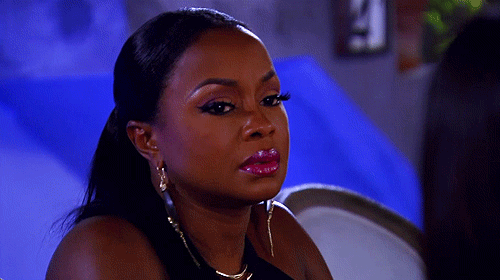
Flash forward several decades and the European Powers finally started to leave. Whether they left on their own accord or were driven out by revolutionary groups, the heinous effects of imperialism are evident for several African countries by way of corrupt governments, tireless civil wars, and psychological trauma.
**The End** ….Except not the end because these heinous effects still linger.
I’ve noticed a slight lack in community for Afro-French people. For African-Americans, there’s this idea of fictive kinship. I may not know you from Adam, but if we are the only two black people within a predominantly white space then we will acknowledge one another. But that’s only on a micro-level. On a macro-scale, we have become masters of creating spaces for ourselves. Hair salons & barbershops, Historically Black Colleges and Universities, BET Network, NAACP… we have a black national anthem!! All with the intent of uplifting and strengthening one another, for validating our place in a society not made for us.
But our sense of community derives from our shared experiences. Many of our ancestors were slaves. Many of our living relatives grew up in segregation. For France, and many other European countries, the experiences of black europeans, while similar, are not identical nor are they shared. At any rate, its hard to have a sense of community when you don’t even know how many people of African descent live in your country. Apparently, taking an ethnic census is constitutionally banned in France.
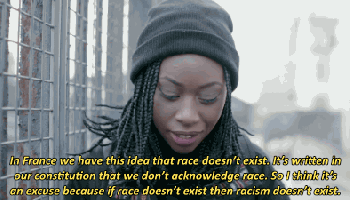
For Afro-french people, they’re not bound together by race as much as their family origins. If you’re a black woman from Guadeloupe, you might feel a bigger bond to people from the West Indies than to those from West Africa. Honestly, I envy greatly that Afro-Europeans know exactly where they come from and even have family that still live in those countries. I have never felt so shameful about not knowing my roots until moving here. Every time I meet an Afro-french person for the first time, the conversation goes as follows.
Them:So where are you from?
Me:I’m from the U.S!
Them:Yeah, I know. But like where are you really from?
Me: Washington, DC.
Them:What’s your family origin I mean to say.
Me:Um…I don’t know? My ancestors were slaves so…
Them:…..
Me:…..Nice meeting you!
In general, there’s this idea that black people are never really from whatever predominantly white country they reside in. Afro-french people can be born and raised in Paris and never feel or be seen as “french”. Even when I meet White Europeans, they are generally skeptical about my origin story but for a different reason. Because I have a lighter skin tone than most Afro-french, many assume that I am “métisse” or mixed. During my trip to Italy, an italian man told me “You’re beautiful. I love mulattowomen”. The assumption really bothers me because black and beautiful are not mutually exclusive concepts homeboy! But I do love their faces of disappointment when I tell them I am proudly, undeniably, 100% BLACK.
But let’s discuss some positives, for there are many. While Black French don’t organize against injustices in the same way we do, that doesn’t mean they aren’t having these important conversations. The Afro-fem movement seems to be really big here. I’ve seen countless articles, youtube videos, tweets, and have even been invited to conferences by Afro-feminists to discuss the interesting balance of race and gender.
I’ve met so many black french women who are smart and woke. Clever and funny. Women who want to be a voice for their community. Women who are artists, poets, and singers. Women who are beautiful inside and out. Women who are writers. Women who are fly. Women who are college educated. Women who want to uplift and strengthen their fellow sisters. Women who want to be a vessel for serious change in their society.

So don’t sleep on Afro-Europeans. They have a very real place in our world.
I would be remiss not to mention the Strolling Series by Cecile Emeke, which was in truth my personal introduction to Afro-European voices. Cecile Emeke is a British woman who brilliantly decided to film black individuals across the African diaspora. The result? Unraveling the generalized blanket of our black experiences into singular, personal threads of testimony. Emeke has filmed in the Netherlands, Italy, Jamaica, and many other countries and its widespread appeal has garnered a huge Youtube following. Of course, you’ll hear the familiar stories of micro-agressions, respectability politics, and self-love affirmation. But you’ll also hear views on mental health, sexual orientation & expression, capitalism, veganism, colonial reparations, and a plethora of other subjects not often heard from black standpoints.
If you’re interested, I would start with one of my three favorites: Two Black Friends in France ,One Black Male Feminist from the UK, orA Black Actress in London.
So what does it mean to be Black in Europe? I have the same answer for someone who would ask what its like to be black in the U.S. There is no simple answer. The culture, the attitudes, the ideas, the joys, the struggles of black people are not monolithic. They are varied. They are nuanced. They may intersect but they don’t coalesce.
I write this to say there is more to the black experience than what you have experienced personally. I think its important not only to have conversations on blackness within the US but in a global context as well. And lets remind ourselves that as Black Americans, our global visibility gives us a certain level of privilege. The next time you say #BlackLivesMatter, mentally expand that demand outside of North America. When you think of the black community, challenge yourself to think beyond your own borders.
And if you’re able, travel abroad. Talk to people. Have these discussions. Your eyes and minds will open wider than you know.

Conjugation, subject-verb agreement, verb tenses…is there anything more clinical than learning a language at school? While these are all necessary elements of language learning, real fluency is born from listening to native speakers in their natural element.
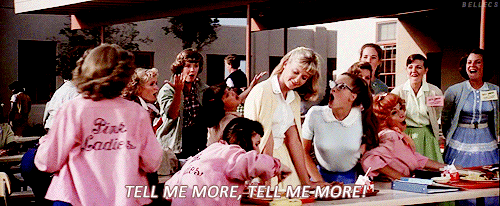
I’m talking about the type of mannerisms and peculiarities even native speakers don’t know about themselves! Sure you can write a 10-page essay in impeccable french, but can you gab with the girls at the hair salon? Here are the five language nuances your teacher won’t teach you.
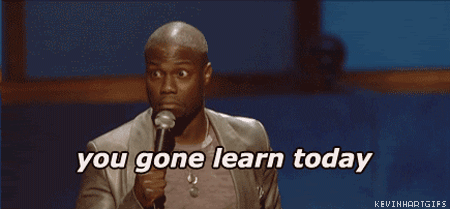
1. Inflections
Languages don’t sound the same. That’s an obvious statement. But even the inflections and vocal tones don’t necessarily translate. For example, in english, depending on the context, we don’t necessarily need to go up at the end of a question. But in french, its essential. I’ve even been told before that even though my american accent is often undetectable, I speak in an american rhythm. I’m not sure what that means but it just emphasizes how these subtle idiosyncracies can make the difference.
2. Interjections
I always thought interjections were intuitive. Actually, I never thought about them much at all until I moved to France. But I quickly realized that interjections are a learned part of language. If you stub your toe, you’re not going to say “ouch”. You should say “Ouïe”. If you eat something gross, you’ll get quite a few looks if you say “yuck” instead of “Beurk”. Even animals aren’t safe. Ducks don’t quack and pigs don’t oink. One of my classes (embarrassingly) had me imitate the entire animal kingdom because they found the differences so peculiar. At any rate, it’s definitely worth looking these interjections up because they’re a huge part of language.
3. Facial Expressions
The french are quite facially expressive people. It’s quite entertaining as an outsider and all expats notice this right away. My favorite expression is the dumbfounded look my students give me when they have no idea what I’ve said. They widen their eyes and puff their cheeks like a blowfish…it’s hilarious. You can see that look HEREat 0:49. But what struck me most is how uniform that look is, which indicates that is cultural more than it is individual.
4. Hand gestures
The french start counting with their thumb instead of their index finger, the “Ok” sign actually means “zero”, and rubbing your nose means you’re drunk. Hand gestures are definitely cultural. It’s recommended before going to any country to look these up because you may think you’re giving the thumbs up but instead you’ve just started a fight in public. Typically, you won’t find these cultural differences in a textbook.
5. Idioms
One day I asked a friend what she thought of this guy she was seeing.
Her response: “Il est sympa, mais il se regarde le nombril (He’s nice but he looks at his bellybutton).
My first thought: “….That’s weird”
What I didn’t know (and didn’t find out until a week later) was that se regarder le nombril is an idiomatic expression that describes someone as egotistical or narcissistic.
Idioms are a little harder to prepare yourself for because the possibilities are endless and often the expression holds very little indication of what it actually means. However, whenever you hear one try hard to remember it and challenge yourself to use it in another situation.
*Disclaimer: The following list is full of stereotypes….that happen to have a little bit of truth to them
1. Eating On-the-Go
American Girls:

French Girls:
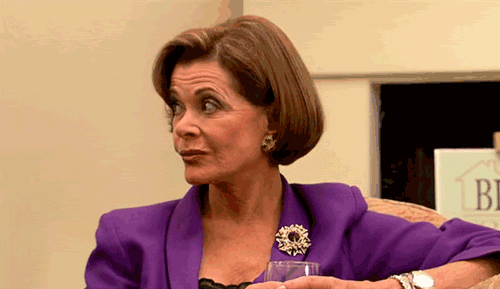
It’s simply not done.
2. Smiling
American Girls:

French Girls:

They don’t. (Unless of course you’re best friends)
3. Giving a random person a compliment
American Girls:

French Girls:

Apparently, complimenting another woman you’re not friends with is considered creepy. Whoops.
4. On Meeting New People
American Girls:
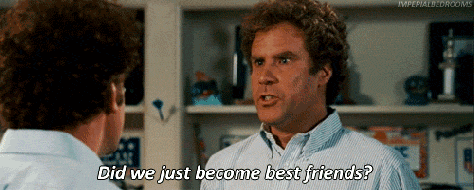
French Girls:

Europeans in general accuse Americans of being over-the-top friendly.
5. Waiting for your french friend
American Girl:
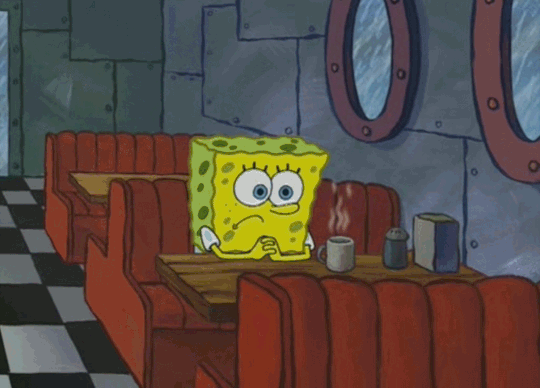
Still the American Girl (Several Hours Later):
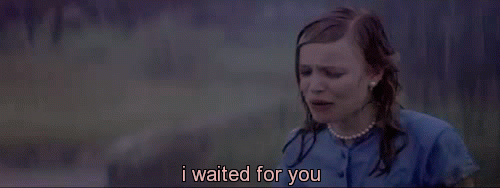
On time is not in the french vocabulary. In fact in many cases, it’s considered culturally polite to be tardy. See why here
6. On Dating
French Girls after 6 days:

American Girls after 6 years:

Let’s try to find a middle ground.
7. On Makeup
American Girls:
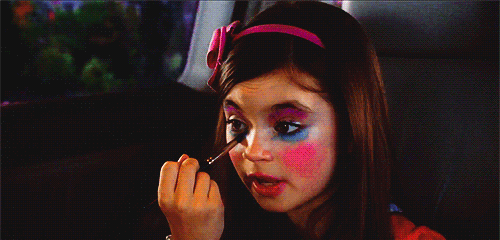
French Girls:

Seriously I feel like RuPaul outchea! But a little foundation wouldn’t kill ya’ll…
8. Dressing Up to Run Errands
French Girls:
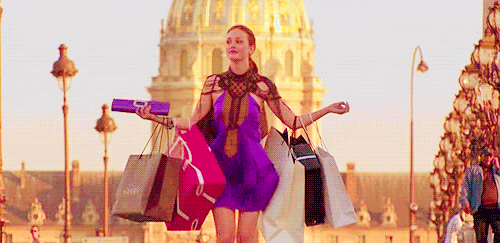
American Girls:

Are we the only ones that do groceries in our sweatpants?
9. Healthy Healthing
French Girls:

American Girls:

But seriously, where’s my donut.
10. On Working Out
American Girls:

French Girls:

I’m pretty sure french women have never set foot in a gym. But how do you stay so thin?!
11. A Night Out
American Girl:
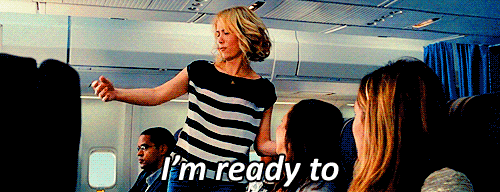
French Girl:

“After World War I (1914-1918), sexual emancipation swept across France, despite the fact that French women were denied the right to vote and saw the imposition, in 1920, of a law curbing abortion and the distribution of birth-control information. The success of Victor Margueritte’s La Garçonne (The Bachelor Girl [1922]), which sold 300,000 copies within a year, reveals how greatly attitudes had changed in regard to women’s sexual freedom. Indeed, this novel portrayed the lesbian as the true liberated woman for the first time, linking economic independence, sexual liberty, and equality with men. Margueritte lost his membership in the Legion of Honor, while feminists, horrified by the "debauchery” and “vice” in his work, refused to support him. Thus, despite the relaxing of moral restrictions after the war, the loss of practically an entire male generation caused the government of the Third Republic, for obvious reasons, to reinforce its control over women and procreation. Women, including feminists, did not protest against the restrictions imposed on them. The accepted social norms allowed married women to engage in limited political activism; single women joined trade unions; and lesbians and liberated heterosexuals enjoyed access to cultural circles. Lesbians continued to have a real visibility within the cultural realm, as international artists inscribed lesbianism within the avant-garde.“-Excerpt from Encyclopedia of Lesbian Histories and Cultures by Bonnie Zimmerman
Post link
“Ah ha! You are at last in my domain, little fool!” Color process illustration by Virginia Frances Sterrett, for the book, Old French Fairy Tales, published in 1920.
Post link
“Violette consented willingly to pass the night in the forest.” Color process illustration by Virginia Frances Sterrett for the book, Old French Fairy Tales, published about 1920.
Post link
“Giotto in Cimabue’s studio.” Lithograph by Alphonse-Leon Noel, based on the artwork of Jules-Claude Ziegler, for L’Artiste, published about 1830.
Post link
Geldberg’s daughters. Metal engraving by Jules Roze, based on the artwork of Pierre Edouard Frere, for the book, Le Fils du Diable, written by Paul Feval in 1852.
Post link
The Parasol. Portrait illustration by Paul Helleu for the book, Paul Helleu, Peintre et Graveur, written by Robert Montesquiou and published in 1913.
Post link
“They were three months passing through the forest.” Color process illustration by Virginia Frances Sterrett for the book, Old French Fairy Tales, published about 1920.
Post link
Six charming French songs from around the world
Aïcha,Cheb Khaled (Algerian singer) 1996
With delightful verses filled with biblical and koranic allusions, this ballad is a classic love story. The singer belts out his love for Aïcha, who is not too interested in him and prefers to be independent. This song, written by a Jew and interpreted by a Muslim, is a cry for peace, and truly a masterpiece. Khaled went on to become one of the Arab world’s most famous singers, and has been named the King of Raï. His most recent hit, C’est la vie, has over 50 million views on YouTube.
Papaoutai,Stromae (Belgian singer) 2013
How could I not mention it. With over 270 million views, this song is the most successful French song on YouTube. The contrast between its cheery beat and depressing lyrics about a boy searching desperately for his father (Papa, où t’es?) makes Papaoutai exceptional. The lyrics and video are just gorgeous, and definitely worth a listen. Amongst Stromae’s other hits, we count Formidable,Alors on dance,CarmenandTe Quiero.
Quelqu’un m’a dit,Carla Bruni-Sarkozy (Franco-Italian singer) 2002
France’s very own ex First Lady ! Yes, Carla Bruni, on top of being Nicolas Sarkozy’s wife, is also a renowned and beloved singer. In this sweet ballad, she faintly remembers someone telling her that he ex-lover stills loves her (perhaps in a dream?).
À toi,Mister You (Franco-Moroccan rapper) 2014
To you my little heart, to you my butterfly. In this sweet song, hardened rapper Mister You shows us his delicate side while nostalgically missing his ex-girlfriend. In the « thug French rapper from Morocco who also has a soft side » category, we also find La Fouine, whose notable piano ballad Tous les Mêmes delivers a message of equality between classes.
Aux armes et cetera,Serge Gainsbourg (French singer) 1979
Out of Gainsbourg’s very large musical repertoire, I chose to include his Reggae rendition of France’s national anthem because of its innovator aspect. Indeed, France’s favourite bad boy recorded this song in Jamaica (Bob Marley’s wife is one of the backup singers) and thus brought the Reggae genre to France. The song sparked a controversy at the time of its release (but then again, Gainsbourg’s career is scandal after scandal). Amongst his best hits are Je t’aime… moi non plus,La Javanaise,Bonnie & ClydeandLa chanson de Prévert, to name a few. If you are interested in Gainsbarre’s life, I recommend Joann Sfar’s 2010 fictional film Gainsbourg, vie héroïque, in which Laetitia Casta plays Brigitte Bardot.
Mishapan Nitassinan,Chloé Sainte-Marie (French Canadian singer) 2009
Granted, it is not French technically. But I wanted to include this lullaby in the mix because Native people in Canada don’t have much of a voice and aren’t represented well in the media. This song doesn’t have any actual lyrics (except something along the lines of « Remember how big our land was »), the singer just sings a list of places and cities in present-day Canada, USA and Mexico that used to belong to the Native people. Other Amerindians singers include Philippe Mckenzie, Floyd Western and rapper Samian.
Other memorable French musical artists : Charlotte Gainsbourg, Françoise Hardy, Johnny Hallyday, George Brassens, Francis Cabrel, Coeur de Pirate, France Gall, Charles Aznavour, Edith Piaf, Celine Dion, Jacques Brel, Joe Dassin, Michel Delpech, Michel Polnareff, Lorie, Alizée.


